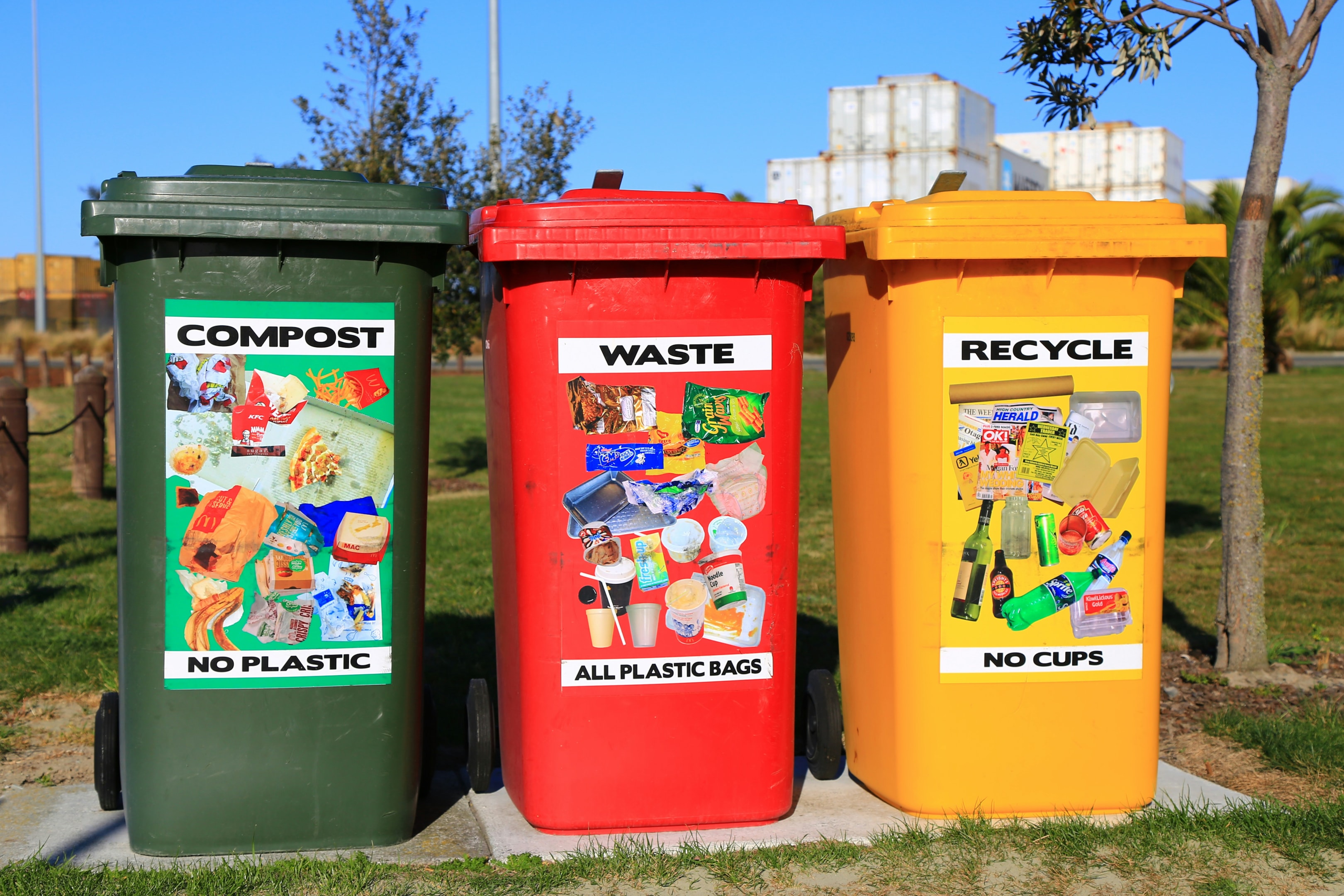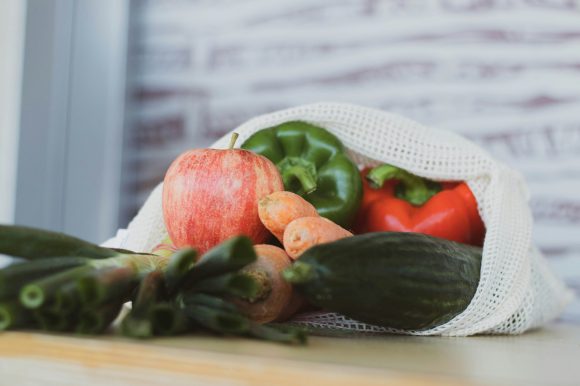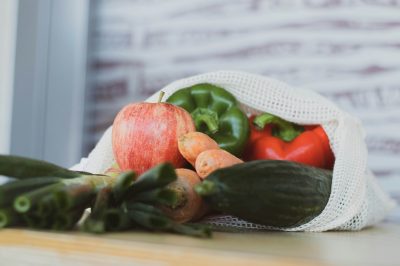As environmental consciousness continues to grow among consumers, sustainable grocery shopping emerges as a powerful tool for positive change.
The world’s population continues to grow, and with it the increased demand for food production. But this also highlights the importance of reducing food waste.
From reducing food waste to supporting local farmers, sustainable grocery shopping involves more than just the products you purchase.
It’s about embracing a lifestyle that prioritizes the planet’s health and the well-being of future generations.
Food waste: From farm to fork
Food waste is a pervasive issue that affects every stage of the supply chain, from farm to fork.

Understanding the magnitude of this problem and its environmental consequences is the first step toward making meaningful changes.
What is food waste and its impact on the environment
According to the Food and Agriculture Organization, roughly one-third of food produced for human consumption is lost or wasted globally.
This amounts to about 1.3 billion tons of food waste per year. Additionally, food waste contributes to water pollution and loss of biodiversity.

It also contributes towards climate change. When food goes to the landfill and rots, it produces methane — a greenhouse gas even more potent than carbon dioxide.
According to the World Wildlife Fund, approximately 6% to 8% of all human-caused greenhouse gas emissions could be reduced if we stop wasting food.
Statistics on food waste and its economic costs
In 2021, the World Economic Forum warned that the global economic cost of food waste is estimated to be around $936 billion annually.
In the United States alone, food waste is estimated to cost around $218 billion each year. By reducing food waste, businesses and households are saving money, and reducing their environmental impact.
The importance of reducing food waste
Reducing food waste is essential for ensuring food security and reducing the environmental impact of food production. Redirecting surplus but still edible food to those in need through partnerships with local charities and food banks is crucial for community welfare and sustainability initiatives.
Food waste reduction can also help to reduce the amount of waste sent to landfills and minimize the production of greenhouse gases.
By reducing food waste, we can help to promote sustainable agriculture and support local farmers.
Sustainable grocery shopping strategies
Sustainable grocery shopping is about making thoughtful choices that benefit the environment, economy, and society.
Let’s look at practical strategies for reducing your carbon footprint while shopping, such as planning meals, buying local and seasonal produce, and minimizing packaging waste.
Plan meals and snacks in advance to reduce food waste
By planning out your meals in advance, you can avoid buying unnecessary items, which will help reduce food waste.
Start with a plan: Whether it’s a piece of paper stuck to your fridge or a weekly reminder on an app, starting with a plan makes the entire process so much easier.
Once you know what you’ll need for your weekly meal plan, you can head out to the grocer with a shopping list to help you stay on course.
Back home, consider using a “first-in, first-out” approach to ensure that older items are used before they expire.
Shop locally and seasonally to reduce carbon footprint
Shopping locally and seasonally can help to reduce your carbon footprint by reducing transportation emissions.
And by shopping at farmers’ markets, you are also supporting local farmers and boosting the community’s economy.
By looking for locally grown and seasonal produce, you can easily reduce your environmental impact.
Buy in bulk to reduce packaging waste
Buying in bulk is an effective way to minimize waste and reduce the packaging waste generated by minimizing the amount of packaging used.

Consider buying items like nuts, grains, and dried fruits in grocery stores in bulk. They are easy to transport via your own containers, and they don’t perish as quickly.
Use reusable containers to store your bulk grocery store purchases and reduce waste.
Smart shopping habits
Developing smart shopping habits is key to reducing food waste and promoting sustainability.
Creating a shopping list, prioritizing your pantry, and utilizing technology in your shopping routine can help you make more informed purchasing decisions.
Make a shopping list to avoid impulse buys
By using a shopping list app or website, you can plan your meals and create a list tailored to your needs.
Sticking to this list while shopping can prevent unnecessary purchases, helping you stay focused and budget-conscious.
Shop your fridge and pantry first to avoid duplicates
Before heading to the store, take a moment to shop your fridge and pantry.
By taking a quick peek before you head out, you’ll avoid buying duplicate items, ultimately reducing food waste.
By taking stock of what you already have at home, you can plan meals around existing ingredients and use up items nearing their expiration dates.
Additionally, this practice stretches your budget!
Use cashback apps and rewards programs for sustainable shopping
Additionally, using cashback apps and rewards programs can encourage sustainable shopping habits.
Certain apps even offer cash back on grocery purchases, allowing you to save money while shopping sustainably. Be sure to check with your local grocer for any rewards programs they may have.
You’d ideally want a program that provides discounts on sustainable products or practices. This will make it easier to choose eco-friendly options without straining your budget.
Reducing food waste at home
The journey to sustainability continues at home, where small changes can significantly impact the environment.
Let’s explore practical ways to reduce food waste in your kitchen, from proper food storage techniques to creative ways to use leftovers.
Store food properly to extend shelf life
Properly storing food is essential for extending its shelf life and reducing waste.
How? By using airtight containers, you can keep food fresh for longer, preventing spoilage and preserving flavors.
For example, dry goods like grains and cereals can be stored in sealed containers to protect them from moisture and pests.
Labeling leftovers with the date ensures they are used before they expire. Place these labels on the front of containers, so they are easily visible when opening the fridge.
If you prefer, you can even use color-coded labels to identify which items need to be consumed first. This helps keep your refrigerator organized and reduces the likelihood of food going to waste.
Use up leftovers and freeze food when possible
Add a fun ‘Leftover Day’ to your weekly routine. This will serve as a reminder to use up items nearing expiration.
Create meals around these leftovers to minimize waste and create delicious dishes with minimal effort.
Another practical way to reduce food waste is by freezing food. This also extends the food’s usability.
For example: Meats, bread, and vegetables can be frozen and later thawed for future meals. When freezing, consider portioning foods into smaller sizes for easier thawing and faster cooking.
For example: Freeze sliced bread or individual chicken breasts to prevent needing to thaw entire loaves or packages.
Compost food scraps to reduce landfill waste
Composting food scraps is an eco-friendly solution to reducing landfill waste, while also creating nutrient-rich soil for your garden.

Starting a compost bin or pile at home allows you to recycle food scraps like fruit and vegetable peels, bread, and grains.
Where to begin? Simply select a spot in your backyard or use a compost bin designed for indoor spaces if outdoor space is limited.
Regularly turn the compost to aerate it and speed up the decomposition process.
Not only does this practice minimize waste, but it also provides valuable nutrients that can enhance the growth of your plants.
Making a difference
Every small change contributes to the larger goal of reducing food waste and promoting sustainability.
Whether joining local initiatives, supporting policies, or inspiring others, you have the power to make a difference and encourage others to join the movement toward a more sustainable future.
Remember: every small change counts when it comes to reducing food waste. If you implement (and stick to) just one change per week, you’re already on the way to reducing your environmental impact.
By sharing your sustainable grocery shopping tips, you can inspire others to join the movement and create a ripple effect of positive change.
Featured image credit: Unsplash/Benjamin Brunner
About the author
Cheryl has contributed to various international publications, with a fervor for data and technology. She explores the intersection of emerging tech trends with logistics, focusing on how digital innovations are reshaping industries on a global scale. When she's not dissecting the latest developments in AI-driven innovation and digital solutions, Cheryl can be found gaming, kickboxing, or navigating the novel niches of consumer gadgetry.











